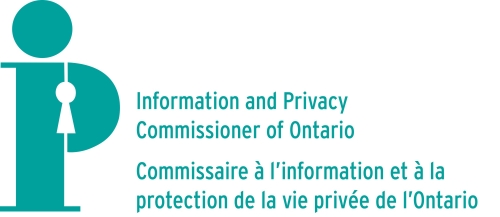Canada's privacy regulators call for strong protection of children's privacy in the development and use of educational technologies Français
TORONTO, Nov. 20, 2025 /CNW/ - As Canada marks National Child Day, privacy authorities from across the country have issued a joint resolution to help ensure that privacy rights and the best interests of children are paramount in the development, procurement, and deployment of educational technologies (EdTech). The resolution, was unanimously adopted at the annual meeting of Canada's information and privacy regulators in Banff, Alberta, on October 8, 2025, hosted by the Information and Privacy Commissioner of Alberta.
Educational technologies have become deeply embedded in the way that education is delivered. They are now a central feature of Canadian classrooms particularly since their adoption increased exponentially during the COVID-19 pandemic.
EdTech includes technologies that support curriculum delivery, content engagement, attendance, and testing and assessment of students in elementary, secondary, and post-secondary institutions.
However, they can also introduce new risks to privacy -- especially for children and young people who have no choice but to use educational platforms that collect and use their personal information in the classroom. Such risks include significant data breaches, student profiling, biometric surveillance, and manipulative design.
The joint resolution affirms that the right to education and the right to privacy are fundamental and interdependent rights. It calls on governments to assume their responsibility for ensuring student privacy when assessing or authorizing EdTech; education institutions to protect privacy throughout the procurement process; and vendors, to design privacy protective tools that take the best interests of children into account.
Taking children's best interests into account when procuring, designing or implementing EdTech means, among other things:
- Embedding privacy by design into products and services;
- Following data-minimization principles;
- Ensuring that safeguards are proportionate to the sensitivity of collected information;
- Avoiding design practices that would influence, manipulate or coerce users into making decisions that go against their privacy interests;
- Building in appropriate access controls and encryption;
- Establishing privacy settings to their most protective level by default;
- Prioritizing privacy protection when selecting educational technologies; and
- Funding and implementing digital education and privacy training and digital literacy skill development.
Quick facts
- Canada's privacy authorities include federal, provincial and territorial information and privacy commissioners and ombuds responsible for privacy law oversight.
- National Child Day is celebrated in Canada and many countries around the world on November 20 to acknowledge the importance of children's rights. It commemorates the day in 1989 when children's human rights were recognized in the United Nations Convention on the Rights of the Child.
Quotes
"Children should not have to trade in their privacy for an education. As digital tools become embedded in classrooms, personal data is too often collected and shared without meaningful safeguards and significant breaches can occur as a result. We're calling on governments, schools, and EdTech vendors to put strong privacy protections in place by designing, selecting, and implementing education technologies that respect children's rights at their very core. We share a collective responsibility to ensure young people can participate in the digital world safely and confidently. Their education, and their future, depend on all of us," says Patricia Kosseim, Ontario's Information and Privacy Commissioner.
Related links
- Resolution: Protecting the privacy of children and youth in the classroom through responsible educational technologies
- Provincial and territorial collaboration
SOURCE Office of the Information and Privacy Commissioner/Ontario
Media contact: [email protected]

Share this article